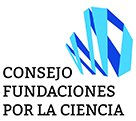Publications are the final result of scientific activity, which also allow to evaluate the overall research process. Scientific articles always have well-defined structures and formalisms delimited by several rules and procedures stablished by journals. Editors are scientific paper reviewers who seek to guarantee both structural and scientific coherence of publications. Some associations of medical editors and useful tools for writing and searching scientific articles are listed below:
International Commitee of Medical Journal Editors (ICMJE)
The International Committee of Medical Journal Editors is a small group of general medical journal editors and representatives of selected related organizations working together to improve the quality of medical science and its reporting. ICMJE meets annually to refine its Recommendations for the Conduct, Reporting, Editing and Publication of Scholarly Work in Medical Journals.
- Uniform requirements for manuscripts submitted to biomedical journals: writing and editing for biomedical publication (english version, spanish version).
Committee on Publication Ethics (COPE)
The Committee on Publication Ethics (COPE) is a non-profit organization established in 1997 whose mission is to define best practice and providing advice in the ethics of scholarly publishing to editors and publishers. COPE also funds research on publication ethics, publishes a quarterly newsletter and organises annual seminars.
World Association of Medical Editors (WAME)
The World Association of Medical Editors was stablished in 1995 as a non-profit voluntary association of editors of peer-reviewed medical journals who seek to foster international cooperation among and education of medical journal editors. It also aims to improve editorial standards and to promote professionalism in medical editing through education, self-criticism and self-regulation.
Enhancing the QUAlity and Transparency Of health Research network (EQUATOR)
The Enhancing the QUAlity and Transparency Of health Research network is an international initiative began in 2006. It seeks to improve the reliability and value of published health research literature by promoting transparent and accurate reporting and wider use of robust reporting guidelines.
Medical Subject Headings (MeSH®)
The Medical Subject Headings thesaurus is a controlled vocabulary produced by the US National Library of Medicine (NLM) first published in 1999. It is used for indexing, cataloguing, and searching for biomedical and health-related information and documents. The main purpose of MeSH is to provide a hierarchically-organized terminology for indexing and cataloguing of biomedical information such as MEDLINE/PubMed and other NLM databases.
Descriptors in Health Sciences (DeCS): MeSH® translation
The organised vocabulary collection in three different languages of Descriptors in Health Sciences was created from MeSH® data in 1999. The BIREME initiative allows to use a unique language for either indexing, searching and recovering all types of scientific material through data sources available in The Virtual Health Library of Spain (BVS). Its ultimate goal is to easily allow users to search in three different languages at the same time using common terms. This tool is a reliable and unique way to retrieve information from data sources such as LILACS, MEDLINE and others regardless of the original language.

